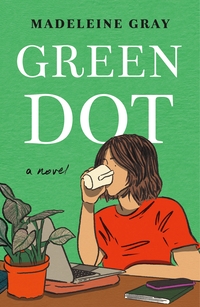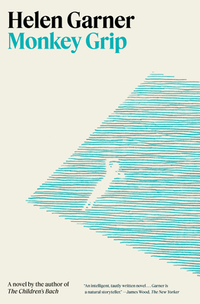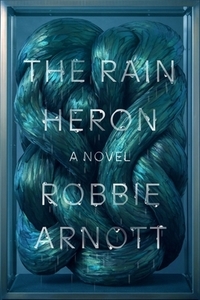Green Dot by Madeleine Gray
 Wednesday, February 28, 2024 at 6:18AM
Wednesday, February 28, 2024 at 6:18AM 
First published in Australia in 2023; published by Henry Holt and Co. on February 27, 2024
The green dot in the title of this novel is the indicator on Instagram that your lover is online. The dot is “staring at you like an eye you can’t see yourself reflected in” and is thus less satisfying than your lover’s actual eyes.
In its early pages, Green Dot is very funny. The humor slowly transitions to drama that is foreshadowed by the narrator’s warning that her audience will ask how she could have been such a fool.
Hera Stephen lives in Sydney. She has no STEM ability but she’s bright, so she views her options as lawyer, journalist, or academic. She loves to learn but has no passion for working. School has taught her that she should be concerned about her formation and development, but spending her days working in a job seems to have little relationship to those goals.
Hera buys her freedom by taking out student loans and earning degrees. The strategy works until she has earned all the degrees that lenders will fund. Hera is living with her father and needs to find work so she can make loan payments.
At the age of 24, Hera finds a position as an online community moderator. The job allows Madeleine Gray to poke fun at internet trolls, content moderation, and office work. While content moderators are rigidly separated from the journalists in her office, Hera finds that a content moderator can get invited to office drinks after work with the journalists by being “young, smart-mouthed, female, reasonably big-titted, with no avowed journalist aspirations of your own.”
Hera befriends fellow content moderator Mei Ling, who is her ally against a universally disliked supervisor. Their snarky message exchanges using the office intranet add to the novel’s humor. Hera also has friends from her student days. Soph, the most amusing of them, “is smart and mostly motivated by vendettas.” She likes to gossip and is encouraging Hera to try having sex with a man (Hera having mostly confined her sex life to women).
When Hera starts to flirt with Arthur, a British journalist who works in her office, Soph encourages her to shag him. Hera accepts the challenge and begins an affair. This is the point at which the story moves from humor to drama. I was disappointed that the humor nearly disappears at that point because the humor is sharp and more enjoyable than Hera’s love life.
The domestic drama of Hera’s affair runs a predictable course. Hera tells the reader at an early point that her story would be predictable and at the end says, “You were right. You predicted it. Everyone was right but me.” Notwithstanding the absence of surprise, the story is emotionally affecting, as Arthur makes promises about leaving his wife but repeatedly explains why the time isn’t right (his wife’s pregnancy is one such excuse). Hera ends it and moves to England, continues to interact with Arthur via Instagram, moves back to Sydney during COVID, and suffers mightily as the story moves to its inevitable end.
Hera’s fantasies about becoming Arthur’s wife and raising his baby as a stepmom might make the reader question Hera’s intelligence, but she is clearly a bright woman who simply has no control over her feelings — or, more importantly, over her response to her feelings. I often feel frustrated with stories about characters who allow their lives to become soap opera plots, but the novel’s initial humor drew me into Hera’s personality and made me sympathize with her when her life falls apart. In the end, Hera manages to learn something about herself and about life — she develops as a person, as she was told she should do in school — and that development suggests a possibility of growth that makes the predictable story worthwhile.
RECOMMENDED



